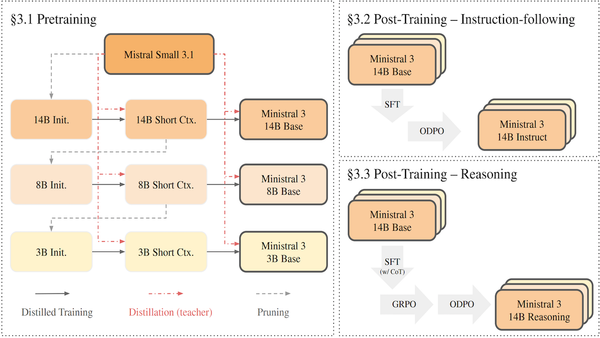Qwen pilots new attention mechanisms: Who uses ChatGPT and why? Answers from a new study
Replit’s self-testing updates to Agent 3. Stable Audio speeds up custom sounds for enterprise. Google’s plan to spread paid Gemini plans worldwide. Zoox’s unusual robotaxis hit the road in Las Vegas.

Welcome back! In today’s edition of Data Points, you’ll learn more about:
- Replit’s self-testing updates to Agent 3
- Stable Audio speeds up custom sounds for enterprise
- Google’s plan to spread paid Gemini plans worldwide
- Zoox’s unusual robotaxis hit the road in Las Vegas
But first:
Qwen3-Next employs hybrid attention for long context inputs
Alibaba introduced Qwen3-Next-80B-A3B, which activates only 3 billion of its 80 billion parameters during inference using a sparse mixture-of-experts design. The model combines Gated DeltaNet linear attention with standard attention in a 3:1 ratio, achieving performance comparable to dense 32 billion-parameter models while using less than 10 percent of the training compute. For contexts over 32,000 tokens, Qwen3-Next delivers more than 10 times faster inference and supports up to 256,000 tokens. This shows that sparse architectures with hybrid attention can match larger models’ performance while drastically cutting computational costs. The models are available on Hugging Face and ModelScope, with API access through Alibaba Cloud and NVIDIA. (Qwen)
Study analyzes ChatGPT’s 700 million weekly users
Researchers from OpenAI and the National Bureau of Economic Research analyzed ChatGPT’s growth from November 2022 to July 2025, finding that the chatbot reached 700 million weekly active users, or approximately 10 percent of the world’s adult population. The study reveals that 70 percent of ChatGPT use is now unrelated to work, with non-work messages growing faster than work-related ones. Writing tasks dominate work usage at 40 percent, while practical guidance, information seeking, and writing assistance collectively account for nearly 80 percent of all conversations. The findings suggest ChatGPT provides economic value primarily through decision support, especially benefiting educated users in professional occupations who use it more for seeking advice than performing tasks directly. (OpenAI)
Replit launches Agent 3 with self-testing capabilities
Replit released Agent 3, its updated software development assistant that autonomously tests agent-built applications in a browser so it can fix issues automatically. The system operates 3 times faster and costs 10 times less than Computer Use models. Agent 3 introduces app testing features that periodically check buttons, forms, APIs, and data sources, then automatically repair detected problems. The platform enables users to build other agents and automations through natural language, supporting integrations with Telegram, Slack, Notion, Linear, and other services. Agent 3 runs autonomously for up to 200 minutes and is available to all free and paid users. (Replit)
Stable Audio update boasts two-second inference speed
Stability AI launched Stable Audio 2.5, an audio generation model designed specifically for enterprise sound production. The model features improved musical composition with multi-part structures (intro, development, outro), better prompt adherence for mood descriptors and musical language, and support for audio inpainting workflows. Enterprises can fine-tune the model on their own sound libraries to create unique brand identities for advertisements, games, and in-store experiences. Stability AI says the new model can generate three-minute tracks in under two seconds on a typical GPU. The model is available now at StableAudio.com, through the Stability AI API, and via various partners. (Stability AI)
Google debuts low-cost AI subscription plan in Indonesia
Google introduced AI Plus, a new subscription plan giving users access to advanced AI tools including the Veo 3 Fast video generation model and image creation tools Whisk and Flow. The plan also includes Gemini 2.5 Pro, enhanced NotebookLM features for document analysis, and AI assistance integrated into Gmail, Docs, and Sheets. Indonesia is the first country to receive this plan, which Google positions as making powerful AI tools more accessible for productivity and creative tasks. The subscription costs 75,000 Indonesian rupiah (about $4.50) per month, with a 50 percent discount for the first six months for new subscribers. (Google)
Amazon’s Zoox launches robotaxi service in Las Vegas
Amazon’s self-driving subsidiary Zoox launched its public robotaxi service in Las Vegas, offering free rides between select locations on the Strip. The company’s custom-built electric vehicles feature no steering wheel or pedals, with two rows of seats facing each other and bidirectional wheels that eliminate the need to turn around. Zoox plans to expand to San Francisco later this year, followed by Austin and Miami, as it attempts to compete with Waymo. Zoox will begin charging for rides pending regulatory approval. (CNBC)
Want to know more about what matters in AI right now?
Read the latest issue of The Batch for in-depth analysis of news and research.
Last week, Andrew Ng reflected on Coursera’s annual conference in Las Vegas, highlighting the shift to skills-based education, the role of AI in learning, and the launch of new “skill tracks” to help learners build applied abilities.
“AI, being a very practical field, has always had a strong emphasis on applied skills, but in an era when people are questioning the value of academic degrees, other sectors would also benefit by shifting toward skills.”
Read Andrew’s letter here.
Other top AI news and research stories covered in depth:
- Meta and OpenAI are adding new rules to strengthen guardrails for teens’ chatbot use after recent criticism.
- Google has been ordered to share its search index with AI rivals, though it won’t be forced to sell Chrome or Android.
- In Texas, Alpha School is experimenting with a model where students spend two hours learning with AI versus six with a teacher.
- Researchers introduced ATLAS, a transformer-like architecture capable of processing input contexts as large as ten million tokens.




